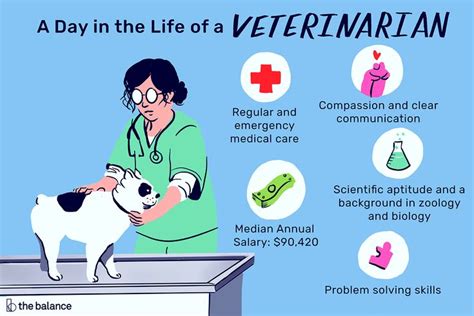The Path to Becoming a Vet

Pursuing a career in veterinary medicine requires a substantial commitment, both in terms of time and resources. Aspiring veterinarians must complete an undergraduate degree, typically in a science-related field, before applying to veterinary school. Veterinary school is a competitive and rigorous program that typically lasts four years, followed by a one-year internship. After completing their education and training, veterinarians must pass a national board exam to obtain their license to practice.
Competition for Jobs
The job market for veterinarians is competitive, particularly for entry-level positions. According to the American Veterinary Medical Association (AVMA), the number of practicing veterinarians in the United States has grown significantly in recent years, while the number of available jobs has remained relatively stable. This has led to a competitive job market for new veterinarians, who may face challenges finding their first job after graduating from veterinary school.
Factors Influencing Employment
Several factors can influence the availability of veterinary jobs and the competition for positions. These factors include:
- Location: The job market for veterinarians can vary depending on the geographic location. Rural areas may have a greater demand for veterinarians than urban areas, while certain specialties may be more in demand in specific regions.
- Type of practice: The type of veterinary practice can also affect job availability. Private clinics and hospitals are the most common employers of veterinarians, but opportunities exist in government, academia, and research institutions.
- Experience: Veterinarians with more experience are typically more competitive in the job market, as they have a proven track record of success and a wider range of skills.
- Specialization: Veterinarians who specialize in a particular area, such as surgery, internal medicine, or emergency care, may have an advantage in the job market.
Common Mistakes to Avoid
When seeking a veterinary job, it’s important to avoid common mistakes that can hinder your chances of success. These mistakes include:
- Not networking: Networking is crucial for finding veterinary jobs, as many positions are filled through personal connections. Attend industry events, join professional organizations, and reach out to veterinarians in your field.
- Not tailoring your resume and cover letter: Your resume and cover letter should be tailored to each specific job you apply for. Highlight your relevant skills and experience, and explain why you are the best candidate for the position.
- Not following up: After submitting your application, don’t forget to follow up with the hiring manager. A polite email or phone call to express your continued interest can help you stand out from other candidates.
FAQs
-
How long does it take to become a veterinarian?
Typically, it takes four years of undergraduate education, four years of veterinary school, and one year of internship to become a licensed veterinarian. -
How much do veterinarians make?
According to the AVMA, the median annual salary for veterinarians in the United States is $99,270. However, salaries can vary depending on factors such as experience, specialization, and location. -
Is there a demand for veterinarians?
The demand for veterinarians is expected to grow in the coming years as the population of pets continues to increase. However, competition for jobs can be high, particularly in urban areas. -
What are the job prospects for new veterinarians?
Job prospects for new veterinarians can vary depending on factors such as location, experience, and specialization. Networking and tailoring your job search to specific positions can improve your chances of success. -
What are the most in-demand specialties for veterinarians?
Specialties in high demand include surgery, internal medicine, emergency care, and exotic animal medicine. -
How can I increase my chances of getting a veterinary job?
Networking, tailoring your job search to specific positions, and gaining experience through internships and volunteer work can all increase your chances of getting a veterinary job.
